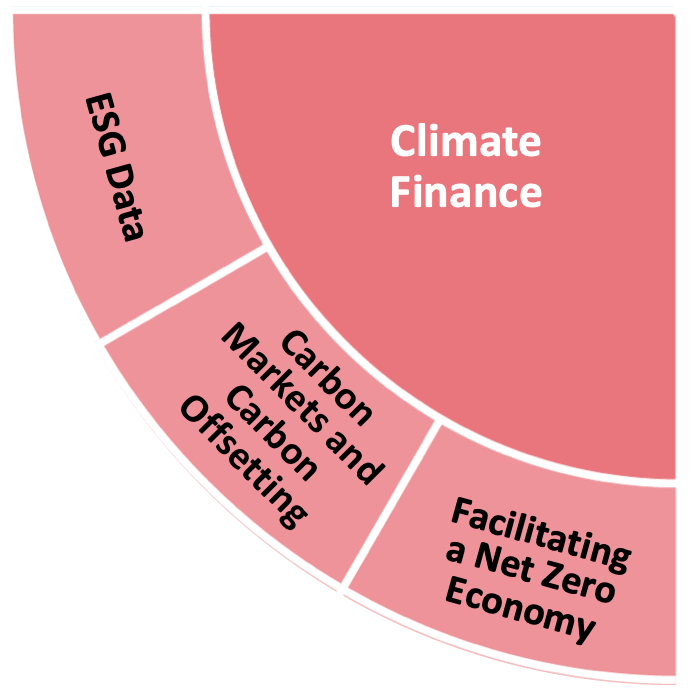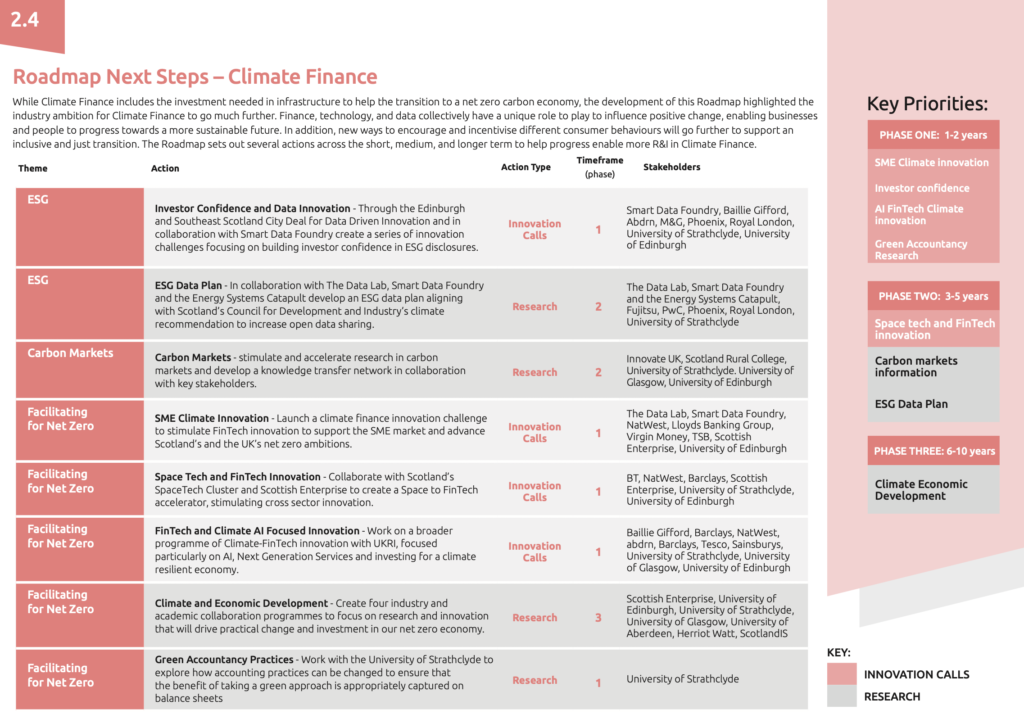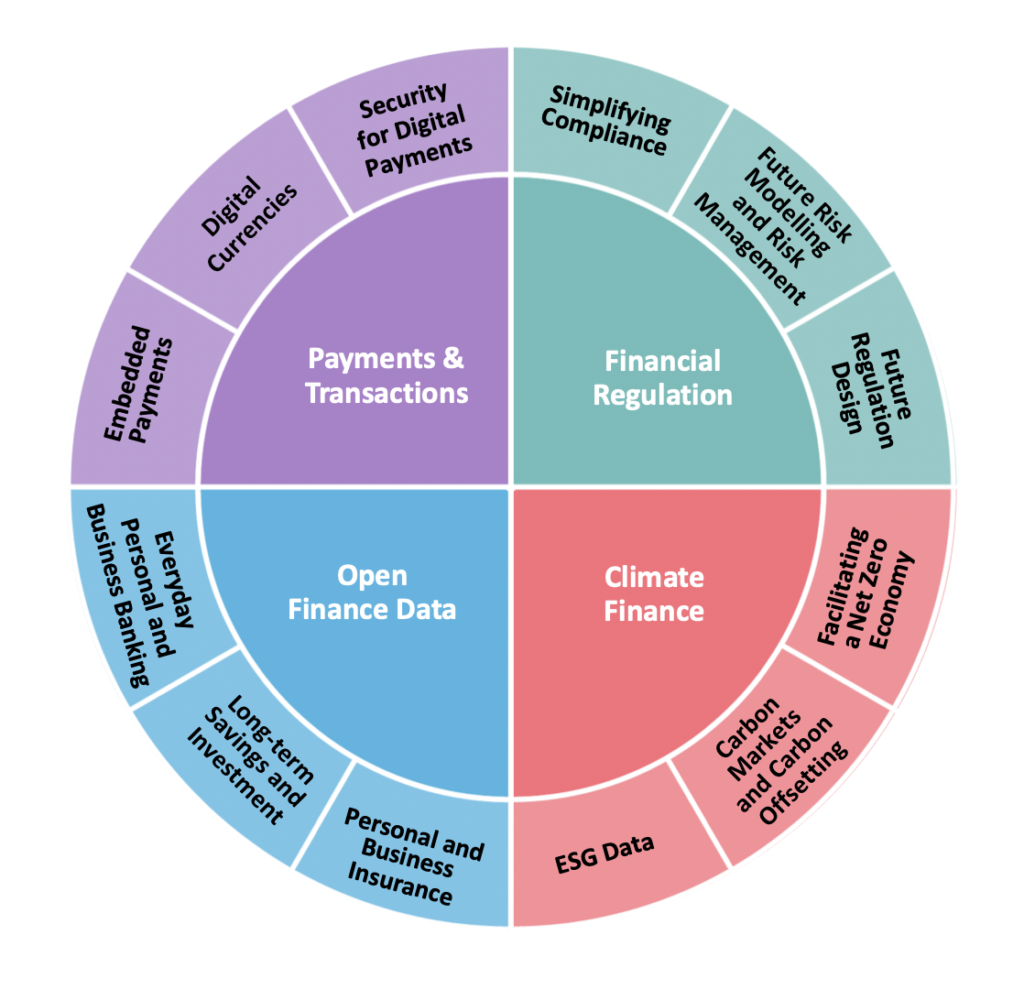 The impact of climate change across the world is disrupting national economies and affecting lives. It requires urgent action from all to address the growing issue.
The impact of climate change across the world is disrupting national economies and affecting lives. It requires urgent action from all to address the growing issue.
In its 2020 Global Risks report, the World Economic Forum highlights that the risk signals show the horizon for addressing climate risks has shortened. For the first time in the history of the report, the top five risks that it outlines are in a single category: ‘climate environmental change’
In the Research & Innovation Roadmap, we use the term Climate Finance to describe the role that finance, technology and data can play in addressing the climate change crisis and powering a sustainable future.
The importance of Climate Finance
Enabling a more sustainable future was a prominent theme throughout the research for the development of the Roadmap. Throughout our analysis, the influence of finance together with the potential for exponential change through technologies was thought to be a powerful combination to help the necessary transition to a carbon neutral economy.
In the UK, financial regulators are aiming to influence positive climate outcomes through a series
of new expectations, rules and guidance. The Bank of England is working to encourage an early and orderly transition to a carbon neutral economy and to “play a leading role, through policies and operations, in ensuring the financial system, the macroeconomy, and the Bank are resilient to the risks from climate change and supportive of the transition to a net zero economy.”
The Financial Conduct Authority also has a sustainable finance strategy, aiming to build greater transparency and trust, developing guidance and tools to provide mutual support to address the challenges of climate change.
Climate Finance is a complex matter. Our research with FinTech Scotland showed that it connects many things, including:
- Investment
- Regulatory change
- Better data
- Advanced analytics
- A deeper understanding of consumer behaviours and consumer engagement
- A deeper understanding of new technologies, biodiversity, carbon, and carbon markets
The challenge ahead is huge. Nevertheless, the research behind the Roadmap pinpointed three priority areas where further FinTech research and innovation could advance progress by helping nations adapt to the impact of climate change, manage the risks of transition and lead to them becoming greener, more resilient and more inclusive. All three offer Scotland and the UK an opportunity to use strengths in research and innovation, and to build collaborative action across the FinTech and finance industry and the research community.
Priority areas in Climate Finance
Environment, Social, Corporate Governance (ESG) data.
Assessing the current situation and outlining the ambition for new data sources, clearer standards and advanced analytics to build greater trust and transparency in the sustainable claims made by finance and business.
- ESG reporting
- Investor confidence
- ESG data
- SME market
Carbon markets and carbon offsetting
Considering the role that each plays in realistically transitioning to a net zero low-carbon economy while exploring the technologies and innovation that could drive further progress.
- Voluntary carbon markets
- Carbon offsetting
Facilitating a net zero economy
Moving beyond finance-as-usual practices. Using innovation and technology to reinvent financial markets and stimulate the change needed to support a healthier planet.
- Investment decisions for net zero
- Circular economy
- Housing
- Insurance
- SME market
Roadmap next steps: Climate Finance
A range of proposed next steps are laid out in the published Roadmap, which specifically identifies 8 actions relating to Climate Finance, and categorises each into one of three phases over the next 10 years. These actions are illustrated in the graphic below. the report also references 25 different stakeholders who can support the implementation of these actions, which are broken down into research projects and innovation calls.
More information about FinTech Scotland’s Research & Innovation Roadmap can be found here, where the full Roadmap can also be downloaded.

